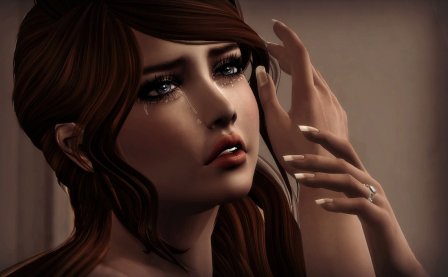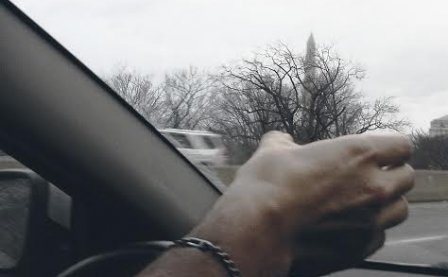With Wolf Parade on indefinite hiatus, I’m sure a lot of critics were worried that without co-frontman Dan Boeckner’s more straightforward songwriting to rein him in, Spencer Krug’s already-winding material would become so maze-like as to leave listeners stranded. Personally, I wouldn’t have complained. Far from seeming “self-indulgent” or just plain boring, Krug’s most complex songs have, to me, always felt the most propulsive. The intricate melodic machinery of Krug at his most experimental took a while to understand, but that’s only because it’s the high speed Maglev train to rock’s brutish stone wheel. Lifted from the burden of upholding Wolf Parade’s mostly straight-up rock sound, might Krug feel liberated enough to, I dunno, do something even weirder than (his other big band) Sunset Rubdown’s Random Spirit Lover?
Nah. As it turns out, limitless freedom just might not be his thing. In the two releases from Krug’s solo project Moonface, he’s traded his usual shackles of (serial) collaboration (besides Wolf Parade, there’s Swan Lake, Sunset Rubdown, and Frog Eyes — that’s a lot of willingness to take the backseat for someone whose songs have been sometimes labeled “self-indulgent”) for a different set of restraints. On last year’s Dreamland EP: Marimba and Shit-Drums, Krug limited himself, mostly, to a marimba and, yes, shitty-sounding drums. The result was a single, 20-minute track where the instruments’ limitations amplified Krug’s compositional strengths: the clean monotone (you know, compared to an electric guitar) of the marimba just showed off the track’s interlocking melodies without getting bogged down in texture, and the instrument’s natural staccato gave the track enough percussion (the drums themselves were pretty useless) to carry it through its marathon length.
Now, with Organ Music Not Vibraphone Like I’d Hoped, Krug’s shackled himself to just, you know, an organ, another natural choice for the mostly-keyboardist. But where the marimba succeeded, here there’s organ failure. Originally intended to be a drone album, the project quickly became song-based, but you can still feel Krug’s interest in texture and repetition in the album’s five tracks. Loops that sound like souped-up organ presets are everywhere, from each song’s opening moments through its close, and for the most part they don’t change. When Krug makes the blips and bleeps melodically interesting, as he does on the album’s opener and best track “Return to the Violence of the Ocean Floor,” that’s not really an issue. But when the presets just provide percussion, like on the first half of the album’s worst track, “Shit-Hawk in the Snow,” the seven-and-a-half-minute average track length makes itself felt.
That’s not surprising, since Krug’s songs have always been driven by melodic progression and change, not beats. The problem is, Organ Music’s repetitive rhythms keep much change from happening in the songs Krug constructs on top of them. “Return to the Violence of the Ocean Floor” has some shakeups that rival any of Krug’s other projects, and “Fast Peter” changes halfway through to, unfortunately, a hippie-dippie organ jam. But overall, the regular plodding tethers the sprawling dynamism you’d expect from Krug, as if the beats really were bars, jailing up everything else.
The organ music is not music like I’d hoped, but it still has its charms. “Loose Heart = Loose Plan” sounds like Krug karaoking over a muzak version of a Fever Ray track, which is actually a good thing; “Fast Peter” has an endearing bounce and dryly succinct storytelling; and “Whale Song” — most of the songs, actually — could be an organ remake of an unreleased song from one of Krug’s other projects. His strengths are all being restrained, but you can tell they’re struggling to get free. It’s fun to watch them wiggle.
More about: Moonface




